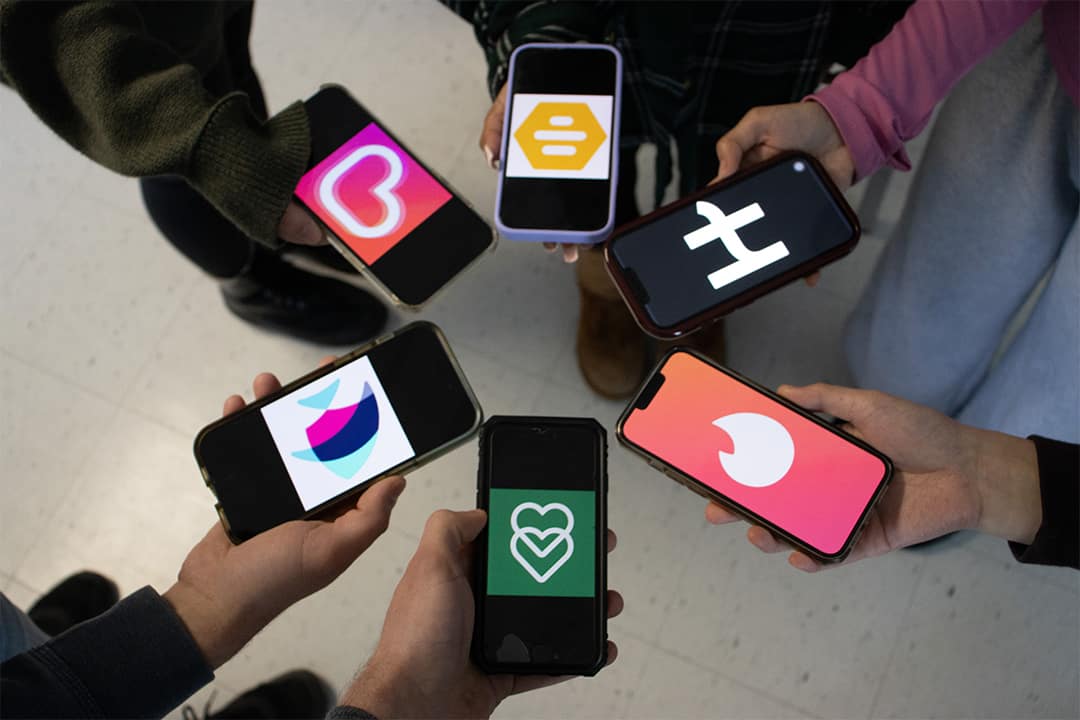What is the modern formula for finding love?
Rom-coms or shows about love and sex tend to suggest that a meet-cute — for instance, bumping into each other on the sidewalk à la Carrie Bradshaw — is a crucial step. Even in Nora Ephron’s You’ve Got Mail, a rom-com about two people in an online romance, it turns out that the protagonists are unsuspecting business rivals who hate each other in real life!
However, the digital age has transformed, or perhaps impeded, how couples meet. A Stanford study from 2019 revealed that for straight couples, meeting romantic partners online has become the most likely way for relationships to begin, replacing traditional methods of meeting through friends, family, or spontaneous meet-cutes.
Dating apps have revolutionized how we meet and interact with potential partners. It breaks down geographical barriers and allows us to explore connections beyond our immediate social circles. It caters to a diverse range of preferences and allows you to get to know other users through interesting prompts, photos, and music. Matchmaking algorithms on dating apps now do the work of finding the right person for you. By sifting through the settings, the app can find numerous people who have specific habits that suit you.
The modern formula for finding love seems entirely dependent on an algorithm, as dating apps seem to be the first place we gravitate toward finding a partner. This fact might be helpful to people like me — planners and picky daters — but it can leave some users feeling disconnected, disillusioned, and longing for a sense of authenticity in an increasingly artificial landscape. It seems impossible to date correctly online because these algorithms minimize the experience and impact of a possible relationship to a swipe of your finger.
Online dating is a complex world that increasingly frustrates users, and as dating apps continue to prioritize quantity over quality, it seems like the reason for joining an app — genuine human connection — gets sacrificed in the process. Dating apps claim to care about users finding love — Hinge’s slogan emphasizes it as a “dating app designed to be deleted” — but I find that the algorithm that can supposedly find your perfect match has begun prioritizing exclusive users who spend money.
Exclusive matchmaking
Tinder SELECT is Tinder’s newest exclusive membership, available since September 2023 for the cheap monthly cost of 499 USD! While typical Tinder users can only message those they match with, Tinder SELECT users can message anyone they like — regardless of a match. The membership will also prioritize SELECT users’ profiles for other users they like.
Tinder SELECT epitomizes dating apps’ misplaced focus on exclusivity and status over compatibility. The membership operates on the premise that superficial criteria such as wealth and status take precedence over romantic compatibility. This premise fosters what I see as a toxic environment where users can now get messages from strangers without their consent, all because the stranger paid 499 USD.
A CNN article examining Tinder SELECT said that paid subscriptions are intended for serious daters to “find other serious daters amid the seemingly infinite number of free profiles… on apps just for fun.” I believe that this approach by Tinder gets the essence of online dating wrong. There are plenty of people who use dating apps for fun, but dating apps have an option for people to share their intentions on their profiles, and paying for an app does not signify a deeper intent to find love. Paying more to indicate higher interest perpetuates a distorted perception of what love and intimacy are and who is worthy of it.
Prioritizing ‘elite’ users in an already complicated algorithmic system undermines the very essence of what it means to truly connect with another person — the supposed goal of dating apps. Rather than providing broader options of possible connections, Tinder SELECT narrows users’ chances to build genuine and compatible relationships. It perpetuates a culture of superficiality and exclusivity, ultimately undermining the algorithm’s chance at finding you love in the digital age.
I am part of the tiny population that has been very lucky with my experience with dating apps; I’ve never had a bad experience with them, and I met my current partner of two and a half years there. Although most couples dislike answering the question of how they met with a plain “online” — as they prefer telling an interesting and “awww”-provoking story — I don’t quite mind that we met online.
Whether you have a physical meet cute or meet thanks to an algorithm, building a romantic relationship with someone requires the same authenticity, vulnerability, and mutual understanding. In a world increasingly dominated by technology and superficial interactions, cultivating genuine intimacy requires conscious efforts to build a strong foundation that transcends any constraints of the ‘fake’ digital realm — not a subscription plan worth a couple of extra hundred dollars.
Mia Jakobsen is a third-year student at Victoria College studying book and media studies, sexual diversity studies, and digital humanities. She is the president of the Book & Media Studies Student Association and the director of marketing and outreach for VicPride.



No comments to display.